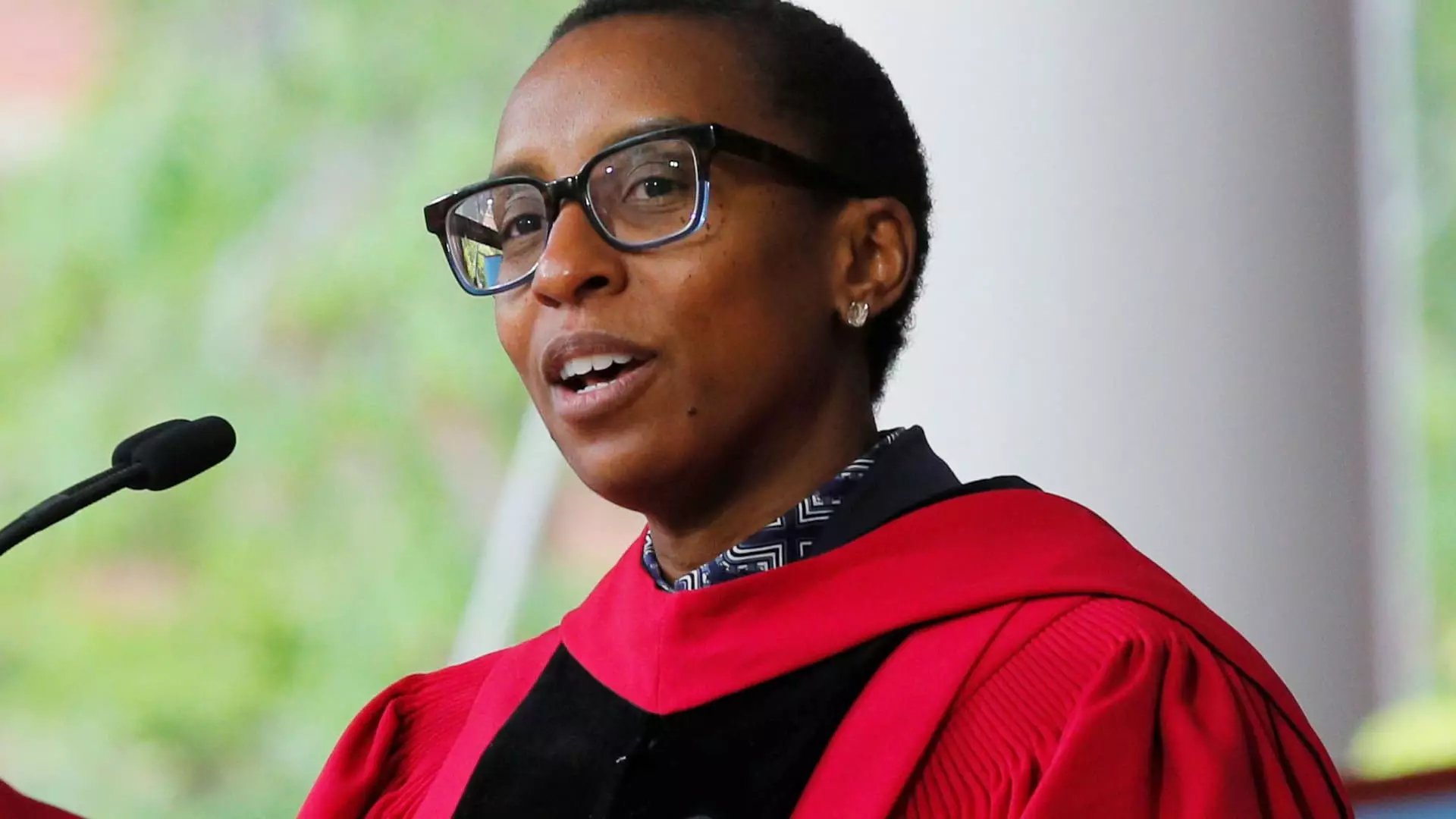The recent resignation of Harvard University President Claudine Gay has sparked controversy and raised questions about the integrity of her leadership. Gay, who held the position for just over six months, stepped down amid allegations of plagiarism, becoming the second Ivy League leader to resign under similar circumstances. This development has sent shockwaves through the academic community, especially considering Gay’s status as the first Black person and only the second woman to serve as Harvard’s president. The brevity of her tenure also makes it the shortest in the university’s history, leaving many to wonder what exactly transpired during her time in office.
Plagiarism Allegations
One of the main causes for Gay’s resignation were the new allegations of plagiarism filed against her. A complaint submitted to Harvard contained six instances of alleged plagiarism, putting her academic integrity into question. Although an “independent review” of her published work had previously found instances of inadequate citation, the emergence of additional claims raised further doubts about her scholarly practices. Interestingly, Gay maintained her stance on the “integrity of my scholarship” despite these accusations. However, the mounting evidence appears to have forced her decision to step down.
Another factor contributing to Gay’s resignation was her involvement in a contentious congressional hearing regarding antisemitism on university campuses. Alongside other university presidents, including the former President of the University of Pennsylvania, Liz Magill, Gay faced criticism for her evasive answers when questioned about the potential violation of conduct codes in relation to antisemitic statements. The lack of direct responses from Gay and Magill not only drew ire from the public but also resulted in later statements from both leaders acknowledging their failure to condemn such speech adequately.
Response and Backlash
In the aftermath of her resignation, Gay’s departure has raised both sorrow and skepticism within Harvard. The Harvard Corporation expressed their acceptance of her resignation “with sorrow,” recognizing her acknowledgment of missteps and resilience amid personal attacks. However, this sentiment is not shared universally, as critics argue that her resignation is only the beginning of a much larger scandal that is yet to fully unravel. Rep. Elise Stefanik, who was involved in the aforementioned congressional hearing, tweeted her response, suggesting that this resignation is long overdue and that more revelations are expected.
The controversy surrounding Gay’s resignation highlights the importance of academic integrity and ethical leadership within prestigious educational institutions. Plagiarism allegations erode the trust and credibility of both the individual and the institution as a whole. Given Harvard’s esteemed reputation, it is imperative that a thorough investigation takes place to address these allegations fully. The university’s commitment to academic excellence must be upheld, and a permanent replacement for the presidency should be found with utmost care and consideration.
Claudine Gay’s resignation as president of Harvard University has sent shockwaves through the Ivy League community. The combination of plagiarism allegations and her involvement in a controversial congressional hearing on antisemitism led to her decision to step down. While the university has accepted her resignation with sorrow and acknowledged her resilience, critics view it as the tip of the iceberg, suggesting there is more to come. The focus now shifts to the importance of academic integrity and ethical leadership, as Harvard seeks a new president to guide the institution toward maintaining its commitment to academic excellence.


Leave a Reply